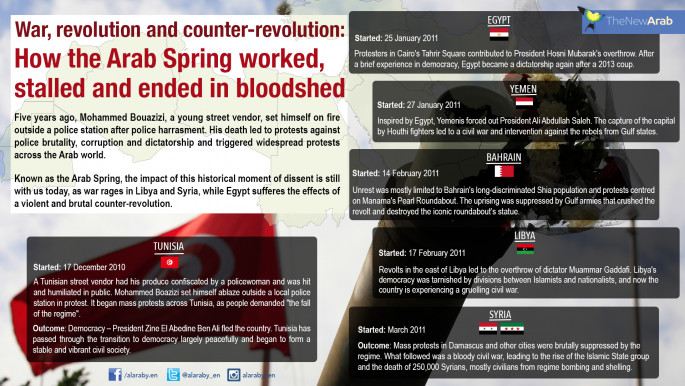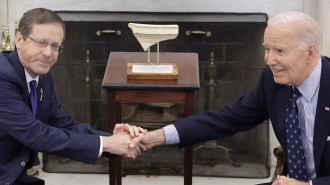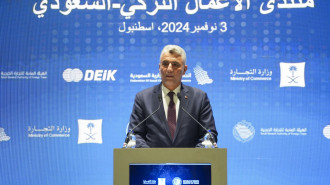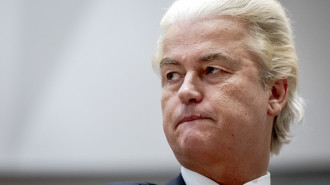Morocco 'cancels' Arab League summit: useless and hypocritical
Morocco 'cancels' Arab League summit: useless and hypocritical
At the request of the Moroccan king, Rabat has asked the indefinite postponement of an Arab League summit scheduled for March, protesting the organisation's failure to tackle pressing issues.
2 min read
The Arab public has long since lost interest in the often-folkloric Arab League summits [AFP]
Morocco has changed its mind about hosting an Arab League summit scheduled in Marrakesh in March, suggesting a meeting of Arab monarchs and presidents would be next to futile at this time.
The kingdom's foreign minister has communicated the decision to Arab League Secretary-General Nabil al-Arabi.
"The summit has been postponed at the request of the Kingdom of Morocco in light of the preoccupation of Arab officials," said the League's general secretariat in a statement.
While the League said the summit would be held on April 7 rather than March 29, a communique from the Moroccan foreign ministry obtained by The New Arab hinted that the summit would not convene even then.
"The Arab summit is not an end in and of itself and should not be a formal meeting," the text said.
"Current conditions do not favour a successful Arab summit that can come out with decisions up to the level of the situation and the aspirations of the Arab peoples," it added.
Morocco said such a summit would otherwise be an occasion for speeches that would "falsely imply unity and solidarity among Arab states," when crucial answers are needed to address events in Iraq, Yemen, Syria and Palestine.
The League of Arab States, usually referred to as the Arab League, was founded by Egypt, Iraq, Lebanon, Saudi Arabia, Syria, Yemen and Transjordan, which became Jordan in 1950, in Cairo in 1945.
Membership later expanded to include Algeria, Bahrain, Comoros, Djibouti, Kuwait, Libya, Mauritania, Morocco, Oman, Qatar, Somalia, Sudan, Tunisia and the United Arab Emirates.
The kingdom's foreign minister has communicated the decision to Arab League Secretary-General Nabil al-Arabi.
"The summit has been postponed at the request of the Kingdom of Morocco in light of the preoccupation of Arab officials," said the League's general secretariat in a statement.
While the League said the summit would be held on April 7 rather than March 29, a communique from the Moroccan foreign ministry obtained by The New Arab hinted that the summit would not convene even then.
"The Arab summit is not an end in and of itself and should not be a formal meeting," the text said.
"Current conditions do not favour a successful Arab summit that can come out with decisions up to the level of the situation and the aspirations of the Arab peoples," it added.
Morocco said such a summit would otherwise be an occasion for speeches that would "falsely imply unity and solidarity among Arab states," when crucial answers are needed to address events in Iraq, Yemen, Syria and Palestine.
The League of Arab States, usually referred to as the Arab League, was founded by Egypt, Iraq, Lebanon, Saudi Arabia, Syria, Yemen and Transjordan, which became Jordan in 1950, in Cairo in 1945.
Membership later expanded to include Algeria, Bahrain, Comoros, Djibouti, Kuwait, Libya, Mauritania, Morocco, Oman, Qatar, Somalia, Sudan, Tunisia and the United Arab Emirates.
The Arab League has often been unable to take any major political or economic decisions, its summits being largely ceremonial in nature in the past few decades.
Its contribution to the Arab world’s development has also been negligible.
With the growing clout of other regional blocs such as the Gulf Cooperation Council, the deep rifts between Arab countries and the wars ravaging several of member states, many Arab analysts believe the Arab League's future looks bleak.
 |







 Follow the Middle East's top stories in English at The New Arab on Google News
Follow the Middle East's top stories in English at The New Arab on Google News


